Pre-Workout vs. Post-Workout Nutrition: What You Need to Know
Introduction
When it comes to maximizing workout performance and recovery, nutrition is just as important as your training routine. What you eat before and after a workout can dramatically affect how well your body performs during exercise and how quickly it recovers afterward. The right combination of nutrients can fuel your body, support muscle growth, and reduce fatigue, while poor choices might leave you feeling sluggish or hinder your recovery.
In this article, we’ll dive deep into the world of pre-workout and post-workout nutrition. We’ll explore their differences, the role of macronutrients, and specific supplements and food types that are ideal for each phase. Whether you're training for strength, endurance, or fat loss, understanding how to fuel your body before and after exercise is key to optimizing your results.
The Importance of Pre- and Post-Workout Nutrition
Before jumping into specific food choices and supplements, it's essential to understand the overall role of nutrition surrounding a workout. The goal of pre-workout nutrition is to prepare your body for exercise by providing it with enough fuel to perform optimally. In contrast, post-workout nutrition focuses on recovery, repairing muscle tissue, replenishing glycogen stores, and minimizing soreness.
Pre-Workout Nutrition:
- Goal: Provide energy and nutrients to enhance performance and delay fatigue.
- Timing: Typically consumed 30 minutes to 2 hours before your workout.
- Focus: Carbohydrates for energy and protein to prime muscles.
Post-Workout Nutrition:
- Goal: Rebuild muscle, replenish glycogen, and reduce muscle soreness.
- Timing: Consumed ideally within 30 minutes to an hour after the workout.
- Focus: Protein for muscle repair and carbohydrates for glycogen restoration.
The right balance of macronutrients, along with timing, can maximize performance during your workout and ensure your body recovers efficiently afterward.
Pre-Workout Nutrition: Fueling Your Performance
Pre-workout nutrition is all about setting the stage for your workout. Whether you’re lifting weights, doing HIIT, or going for a run, the food and supplements you consume before exercise directly affect how well your body can perform.
Key Components of Pre-Workout Nutrition
-
Carbohydrates:
Carbs are the primary source of energy for your muscles during exercise. Your body breaks down carbohydrates into glucose, which is stored as glycogen in your muscles and liver. Glycogen is then used as fuel, particularly during moderate to high-intensity workouts. Without sufficient glycogen stores, you may experience fatigue and a drop in performance.Types of Carbs to Eat Pre-Workout:
- Simple Carbohydrates: Found in fruits like bananas, these are fast-digesting carbs that can quickly provide energy. Ideal for a quick energy boost if consumed 30-60 minutes before a workout.
- Complex Carbohydrates: Foods like oatmeal, whole grains, and sweet potatoes provide slower-releasing energy. If you’re eating 1-2 hours before exercising, complex carbs are a better choice as they will sustain energy levels over a longer period.
-
Protein:
Consuming protein before a workout helps initiate muscle protein synthesis (the process of building muscle). This not only primes your muscles for repair but also prevents muscle breakdown during exercise, especially in weight training or resistance workouts.Protein Sources to Eat Pre-Workout:
- Lean Meats: Chicken or turkey can provide a good protein boost.
- Plant-Based Protein: Plant protein powders, such as pea or hemp, are excellent choices for vegans or those avoiding dairy.
- Greek Yogurt: Rich in protein, this is a quick and easy option that also contains some carbs.
-
Fats:
Fats are not as essential for immediate pre-workout nutrition, but they can provide a slow and steady release of energy, especially for longer endurance sessions. Avoid heavy, fat-rich meals right before intense workouts, as they can slow digestion and make you feel sluggish.Healthy Fats Pre-Workout:
- Nuts: Almonds, walnuts, or nut butters can provide a small amount of energy.
- Avocado: A light source of fat that can complement your pre-workout meal.
Pre-Workout Supplements to Consider:
-
Caffeine:
One of the most popular and researched pre-workout supplements, caffeine improves focus, endurance, and reaction time. It works by stimulating the central nervous system and increasing adrenaline, helping you push harder during your workout.- How to Use: Take 150-300 mg of caffeine (from coffee, tea, or a pre-workout supplement) about 30 minutes before your workout.
-
Beta-Alanine:
While not part of your food, beta-alanine is a popular pre-workout supplement that helps buffer lactic acid build-up, allowing you to train at higher intensities for longer periods without fatigue.- How to Use: Take 2-5 grams daily, ideally split throughout the day, to elevate carnosine levels in your muscles.
-
BCAAs (Branched-Chain Amino Acids):
If you train fasted or haven’t consumed a protein-rich meal before your workout, supplementing with BCAAs can help prevent muscle breakdown during exercise.- How to Use: Mix 5-10 grams of BCAAs with water and sip on it during your workout.
Example Pre-Workout Meals:
- 30-60 Minutes Before: A banana with a scoop of plant-based protein powder mixed in water.
- 1-2 Hours Before: Oatmeal topped with berries and a dollop of peanut butter.
- Quick Snack: A slice of whole grain toast with avocado and a boiled egg.
Post-Workout Nutrition: Repair and Rebuild
After you’ve pushed through your workout, your body enters recovery mode. During this period, your muscles need nutrients to repair and grow. The sooner you refuel after a workout, the better your recovery and muscle gains will be.
Key Components of Post-Workout Nutrition
-
Protein:
After exercise, muscle protein breakdown increases, especially after resistance or strength training. Consuming protein post-workout provides your body with the amino acids it needs to rebuild damaged muscle fibers and stimulate muscle growth.Protein Sources to Eat Post-Workout:
- Plant-Based Protein Powder: Ideal for those who prefer dairy-free options, plant protein blends (like pea, hemp, or rice) provide the essential amino acids needed for muscle repair.
- Whey Protein: A fast-digesting protein option that can quickly get to work in your muscles.
- Lean Meats: Chicken, turkey, or fish are excellent whole-food sources of protein.
- Eggs: Rich in protein and healthy fats, eggs are a simple post-workout meal.
How Much Protein?
Aim for 20-30 grams of high-quality protein within 30 minutes to an hour after exercise for optimal recovery. -
Carbohydrates:
During exercise, especially endurance-based activities like running or cycling, glycogen stores in your muscles become depleted. Consuming carbohydrates after your workout helps replenish these glycogen stores, giving your body the energy it needs to recover and prepare for the next training session.Carbohydrate Sources to Eat Post-Workout:
- Sweet Potatoes: A nutrient-dense source of complex carbohydrates.
- Brown Rice or Quinoa: Ideal whole grains that provide fiber and slow-releasing energy.
- Fruits: Bananas, berries, and apples provide quick-digesting carbs to replenish glycogen.
How Many Carbs?
A good post-workout ratio is 3:1 (carbs to protein). For example, if you consume 30 grams of protein, aim for around 90 grams of carbs. -
Fats:
While fats are not as critical immediately post-workout, including small amounts of healthy fats can aid in overall recovery and help with the absorption of fat-soluble vitamins. However, avoid large amounts of fat right after a workout, as it may slow digestion and protein absorption.Healthy Fats Post-Workout:
- Avocado: A source of healthy fats and vitamins.
- Nuts and Seeds: Almonds, chia seeds, and flaxseeds are rich in omega-3s.
- Olive Oil: Drizzle some extra virgin olive oil on a salad for a nutrient boost.
Post-Workout Supplements to Consider:
-
Protein Powders:
A convenient and fast way to get your protein in after a workout. Plant-based or whey protein powders are both excellent choices to jumpstart muscle recovery.- How to Use: Take 20-30 grams within 30 minutes after your workout.
-
Creatine:
Creatine is one of the most researched supplements for increasing muscle strength, power, and recovery. It helps replenish ATP (your body’s energy currency) and supports lean muscle mass gains.- How to Use: Take 3-5 grams daily, ideally post-workout to support recovery and muscle replenishment.
-
Electrolytes:
Intense workouts, especially in hot environments, can lead to loss of electrolytes through sweat. Replenishing these lost electrolytes (like sodium, potassium, and magnesium) post-workout helps maintain fluid balance, reduces muscle cramping, and speeds up recovery.- How to Use: Drink a water-based electrolyte solution after intense or endurance workouts.
Example Post-Workout Meals:
- Protein Shake: Blend a plant-based protein powder with almond milk, a banana, and a handful of spinach.
- Whole Meal: Grilled chicken breast with sweet potatoes and a side of steamed broccoli.
- Quick Snack: A boiled egg with a slice of whole grain toast and some avocado.
Timing Your Nutrition
Both pre-workout and post-workout nutrition depend on timing for optimal benefits. Here's a breakdown of the ideal windows for consuming your meals or supplements:
-
Pre-Workout Nutrition:
Eat a balanced meal with protein and carbs 1-2 hours before exercise. For quicker digestion, opt for a light snack 30-60 minutes before your workout. -
Post-Workout Nutrition:
Consume your post-workout meal or shake within 30 minutes to an hour after exercising to maximize recovery and muscle repair.
Conclusion
Understanding the differences between pre- and post-workout nutrition can make a huge difference in how you perform during workouts and how well your body recovers afterward. Pre-workout nutrition is about fueling your body with the right energy to sustain performance, while post-workout nutrition focuses on repairing muscles and restoring glycogen.
By strategically timing your intake of protein, carbs, and fats around your workout, you can optimize your performance, reduce muscle soreness, and achieve your fitness goals faster. Pair your meals with the right supplements like plant-based protein, creatine, and BCAAs to enhance both your energy and recovery processes.
Taking control of your pre- and post-workout nutrition is the key to unlocking your full athletic potential.
No comments
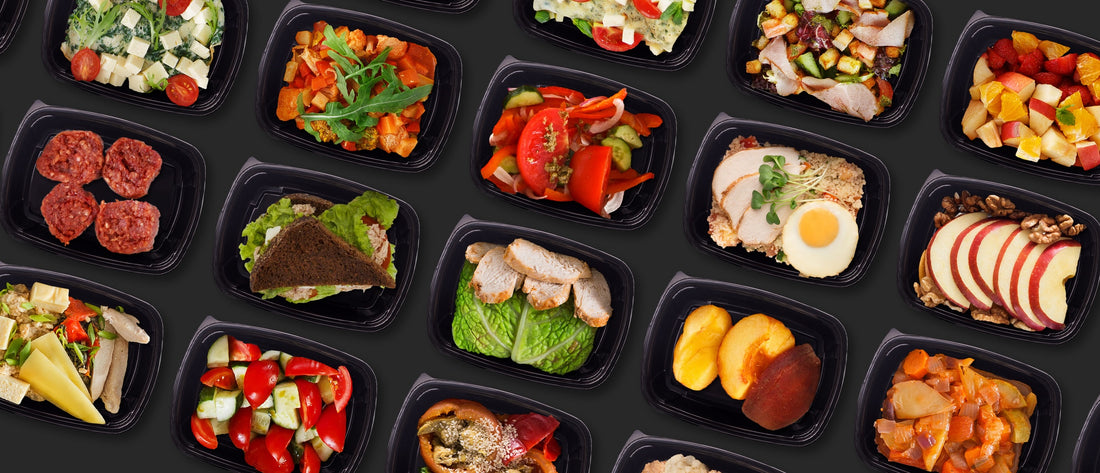

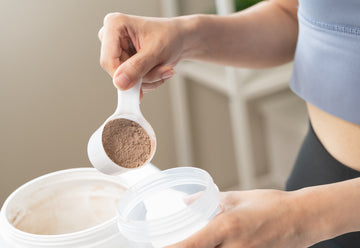


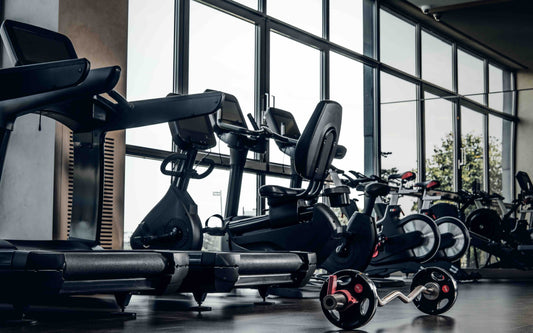
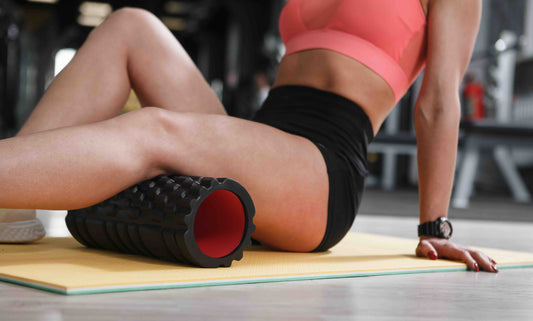
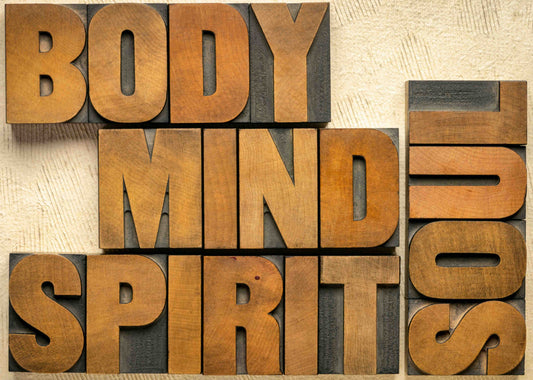
comments